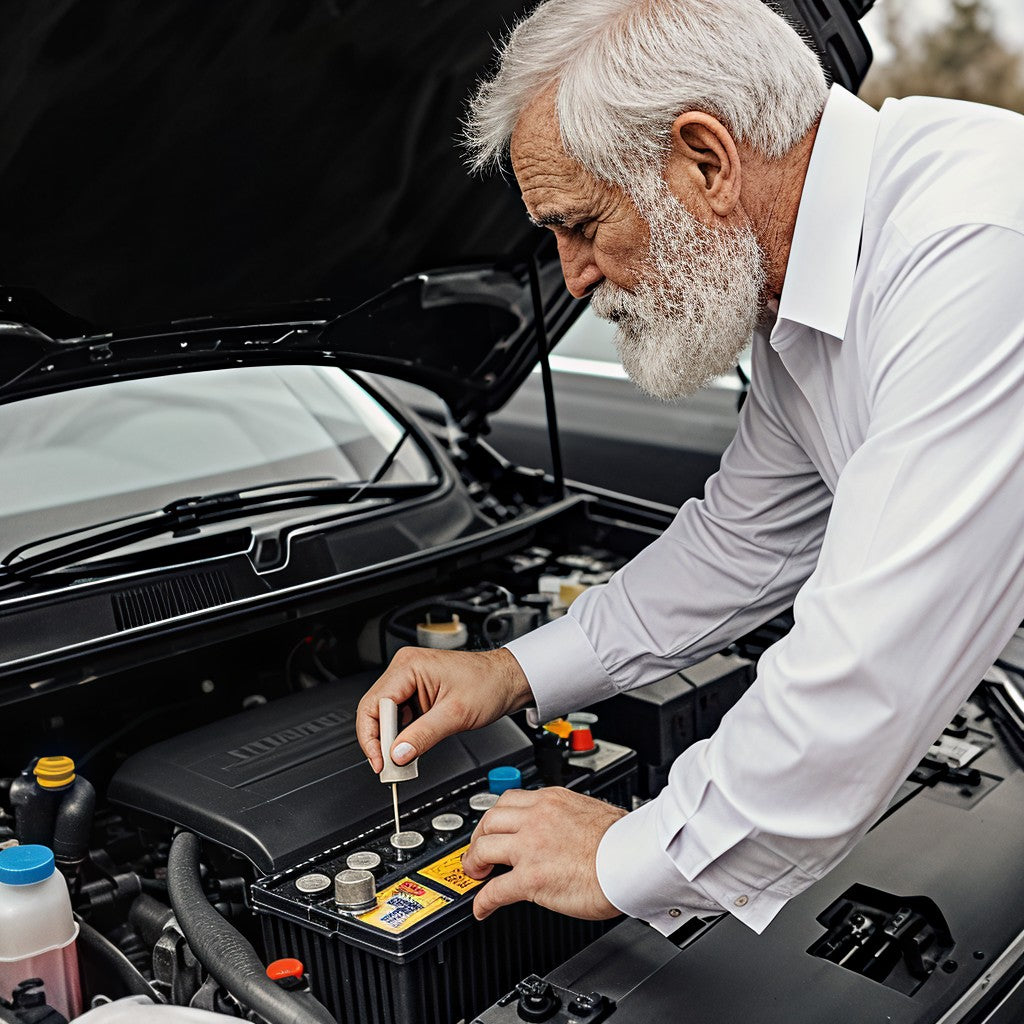For automotive enthusiasts, technicians, and everyday drivers, the question of "Do car battery desulfators work?" is fundamental when considering maintenance and longevity of lead-acid batteries. While the concept appears straightforward, understanding the underlying electrochemical principles is key to evaluating their true effectiveness. This article provides a comprehensive, science-based analysis of car battery desulfators, their mechanisms, efficacy, and practical application.
How Does the Sulfation of a Car Battery Happen?
Lead-acid batteries, which dominate the automotive sector, operate through reversible electrochemical reactions involving lead dioxide (PbO₂) cathodes, sponge lead (Pb) anodes, and sulfuric acid (H₂SO₄) electrolyte. During regular cycles, the formation and dissociation of lead sulfate (PbSO₄) occur at the electrode surfaces.
Over time, especially in batteries subjected to:
- Deep discharges
- Extended periods of inactivity
- Poor maintenance conditions
Lead sulfate crystals grow excessively on both the positive and negative plates. Initially, these crystals are porous and active, participating in charge/discharge reactions. However, as sulfation progresses, the crystals become dense, hard, and insulative, impeding electron transfer, reducing capacity, and increasing internal resistance. Such irreversible sulfate deposits are the primary cause of battery aging and failure.
What is the Car Battery Desulfator?

Standard Definition
Car battery desulfators are a scientifically supported, practical tool to combat sulfation-induced capacity loss in lead-acid batteries. When chosen carefully and used correctly, these devices can significantly extend your battery’s lifespan, reduce maintenance costs, and improve reliability—especially in cold climates or long-term storage conditions.
Scientific Principles
Car battery desulfators utilize pulsed high-frequency voltage signals to induce electrochemical phenomena that can reverse sulfation. These devices typically generate high-frequency (typically in the range of hundreds of kHz to MHz) pulsed waveforms designed to:
- Disrupt crystalline lead sulfate deposits by inducing micro-shocks and localized electrochemical breakdown.
- Accelerate the dissolution of sulfate crystals back into sulfuric acid, restoring active material on the plates.
- Re-establish electrical contact with the active material, improving the chemical reversibility of the lead sulfate.
This process relies on the phenomenon of electromagnetic resonance and electrochemical pulsed signal application, which results in micro-chemical reactions that convert dense, insulative sulfate crystals into soluble lead sulfate ions, effectively reducing the internal sulfate buildup.
Can Desulfation Renew a Dead Car Battery?
Evidence
Laboratory studies and field reports indicate that pulsed electrochemical desulfation can reverse early to mid-stage sulfation, particularly in batteries with partial sulfate deposits. For relatively new batteries or those with mild sulfation, the chemical and electrochemical processes can significantly improve capacity and performance.
Limitations
However, it's important to recognize limitations:
- Severe, irreversible sulfation (such as heavily deposited dense crystals in aging batteries) may only be partially reversible.
- The restoration efficiency is highly dependent on the current state of the battery, including age, usage history, and prior maintenance.
The electrochemical reduction of lead sulfate involves solving the Nernst equation, considering the thermodynamics of sulfate dissolution, and understanding the kinetics influenced by pulsed electric fields:
PbSO4+2H++2e−→Pb+H2SO4
Applying pulsed signals theoretically sustains localized electrochemical reactions that shift equilibrium and promote sulfate dissolution, but these reactions are constrained by the physical and chemical state of the electrode materials.
Reminder
Reputable car battery desulfators incorporate intelligent diagnostics, ensuring they operate within safe electrical parameters, preventing overvoltage or overheating, which could damage the battery. You might be wondering like ”Then how to choose the best car battery desulfactor?” Please keep reading this blog to see how it goes!
What is the Best Way to Desulfate a Lead Acid Battery?

Where can You Start to Prevent Desulfation of car Batteries?
- Regular use of desulfators can prolong battery life—especially in environments with infrequent vehicle use—by reducing sulfation.
- For severely sulfated batteries, mechanical replacement might still be the most effective option.
How to Choose a Car Battery Desulfator?
For optimal results, consider the following when choosing a car battery desulfator:
- Compatibility: Ensure the device suits your battery type and capacity.
- Automation & Safety Features: Look for intelligent diagnostics and protective safeguards.
- Additional Functions: Devices that incorporate features such as being a jump starter or charger can provide added value.
- Brand Trust & Quality: Select reputable brands with proven safety standards, like Pulse Tech, LOKITHOR.
Do You Have Any Product Recommendations?
Recognize that, while not a full cure-all, desulfators represent a valuable, science-backed tool in the arsenal of automotive battery care.
We cannot emphasize the importance of optimizing maintenance routines and improving vehicle reliability. For optimal results, we recommend you choose the car tools that combine desulfation with proper battery maintenance routines.
The LOKITHOR JC400 exemplifies a multi-functional device—integrating a battery maintainer, trickle charger, desulfator, and jump starter—which embodies the practical benefits of this technology. Its design aims to deliver safe, automated, and reliable battery maintenance suited for both consumer and professional users.
Conclusion
In summary, car battery desulfators are scientifically validated tools that help maintain battery health, reducing the risk of unexpected failures. Proper use enhances vehicle reliability, which is crucial for industry standards and driver safety, especially in critical environments and emergency scenarios. Investing in high-quality desulfators like the LOKITHOR JC400 supports safer, more dependable automotive operation.
Contact Us
For further product information, please visit:
- Official website: https://www.lokithorshop.com/
- Email address: info@lokithorshop.com
Recommended Reading: Is a trickle charger good for a car battery?




Leave a comment
All comments are moderated before being published.
This site is protected by hCaptcha and the hCaptcha Privacy Policy and Terms of Service apply.